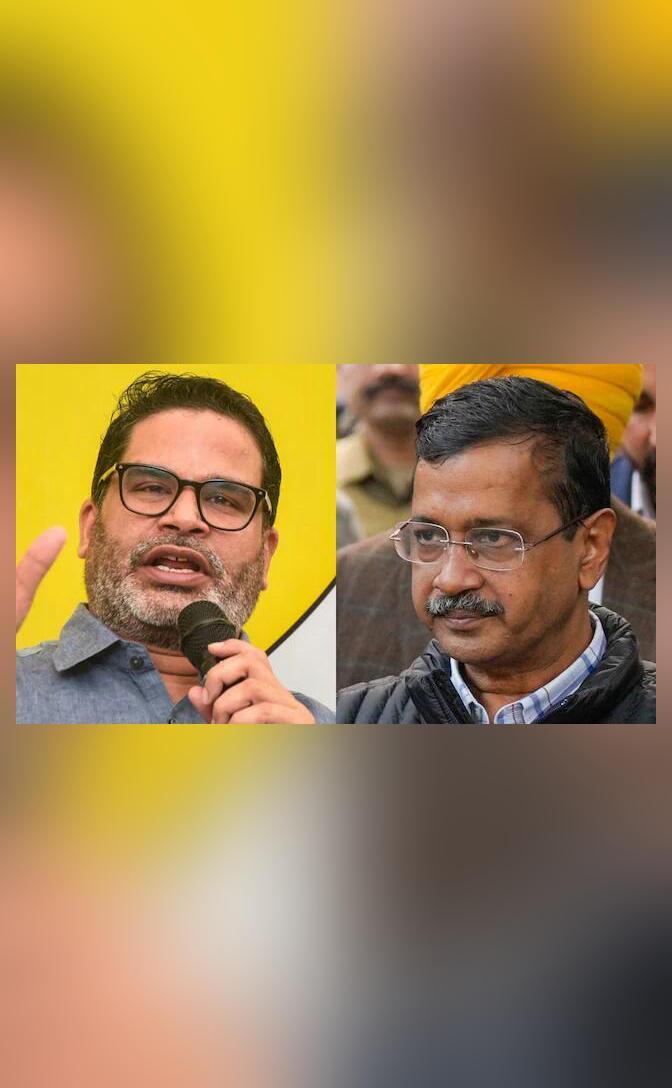
Prashant Kishor Lists Reasons Why Kejriwal & AAP Lost in Delhi Elections
The Delhi Assembly elections 2020 were a major setback for the Aam Aadmi Party (AAP) and its chief minister, Arvind Kejriwal. Despite being the ruling party for the past five years, AAP failed to secure a majority in the elections, and the BJP emerged as the single largest party. In a recent interview, Prashant Kishor, a well-known politician and former political strategist, shed light on the reasons behind AAP’s defeat. According to Kishor, Kejriwal’s decision to resign as Delhi CM after being granted bail in the liquor policy case was a “big strategic mistake” that hurt his party’s chances.
Kishor, who has worked with several political parties, including the Congress and the JD(U), believes that the 10-year anti-incumbency factor played a significant role in AAP’s defeat. In an interview with News18, he said, “In Delhi, you have a unique situation where the anti-incumbency factor is extremely high. People have been voting against the government for the past 10 years.”
Kishor cited the example of the 2013 Delhi Assembly elections, where the Congress party was voted out of power despite being in power for 15 years. He said, “In 2013, the Congress was voted out of power in Delhi, and it was a massive defeat. Similarly, in 2020, the AAP faced a similar fate.”
Another reason that contributed to AAP’s defeat, according to Kishor, was Kejriwal’s fluctuating stance on joining and exiting the INDI Alliance. Kishor said, “Kejriwal’s decision to join the INDI Alliance and then exit it was a big mistake. It hurt his credibility and created confusion among the voters.”
Kishor also pointed out that AAP’s campaign was marred by controversies, including the party’s handling of the COVID-19 pandemic. He said, “AAP’s handling of the COVID-19 pandemic was criticized, and the party’s campaign suffered as a result.”
Moreover, Kishor believes that AAP’s failure to address the concerns of the middle class and the upper-middle class also contributed to its defeat. He said, “AAP’s focus on the lower-middle class and the poor was not enough to win the election. The middle class and the upper-middle class are a significant chunk of the electorate, and AAP failed to address their concerns.”
Kishor also mentioned that AAP’s poor performance in the states of Haryana and Uttar Pradesh, where the party contested assembly elections, was another factor that contributed to its defeat in Delhi. He said, “AAP’s performance in Haryana and Uttar Pradesh was poor, and it reflected poorly on the party’s chances in Delhi.”
In conclusion, Prashant Kishor’s analysis of AAP’s defeat in Delhi Assembly elections 2020 highlights several key factors that contributed to the party’s loss. From the 10-year anti-incumbency factor to Kejriwal’s fluctuating stance on joining and exiting the INDI Alliance, AAP’s campaign was marred by controversies and poor performance in key states. As the party looks to regroup and reassess its strategy, it will be important for AAP to address these issues and refocus its efforts on winning over key voter groups.
Source:






